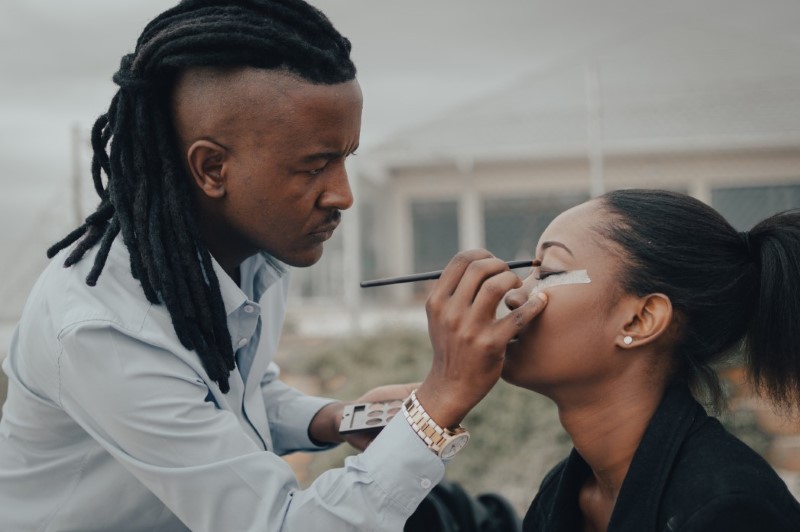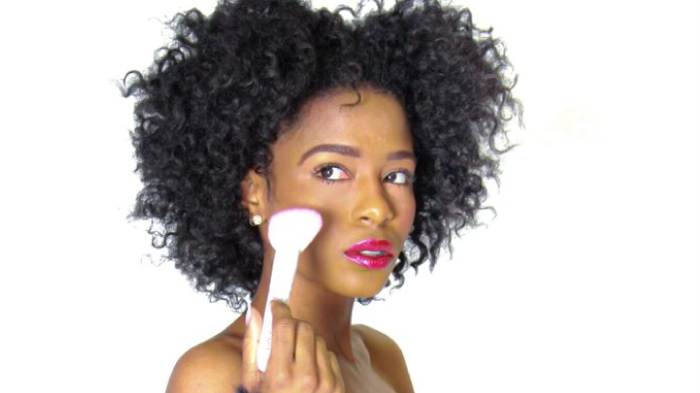There are many different makeup brushes out on the market. They range in price, size, and shape. It can be a daunting task to find the perfect set for you. This blog post will teach you how to choose the best makeup brush for your needs by answering these questions: Do I prefer natural or synthetic bristles? What about fiber length? What’s my budget like? What is my skill level with makeup application? Are there any specific brands I love already? These tips should help narrow down some of your options!
What are some brands of makeup brushes? There are many brands of brushes:
-MAC
-Bobbi Brown
-NARS, which is also a makeup line
-EcoTools brushes, which are made with recycled materials and sustainable bamboo handles.
What makeup brushes do professionals use?
Professionals use brushes made from sable, which is a type of fur that comes from animals like weasels and martens. These brushes are very expensive because the hair is particularly soft and light weighted.

Fiber length should depend on your preference with makeup application. If you prefer applying liquid or cream
Are expensive makeup brushes worth it?
Expensive makeup brushes are worth it if you are a beginner or professional makeup artist. That is because the bristles on these brushes will not absorb any of your products and they also tend to be softer than synthetic brushes, which may cause irritation for those with sensitive skin.
What about your budget?
If money is tight, then opt for affordable synthetic brushes.
Do you prefer natural or synthetic bristles?
If you want high-quality texture with medium coverage, then opt for an animal hair option such as goat’s hair (or weasels and martens above – sable) because it is very soft but dense enough to pick up pigments evenly.
If you are looking for a brush that will apply your makeup in a light and airy way, then go with brushes made of squirrel hair. If you want something full and fluffy to cover up blemishes, opt for the goat hair. Remember that synthetic brushes are usually more affordable.
How do I know if my makeup brushes are good quality?
To determine the quality of your makeup brushes, you need to first examine the brush itself.
If the bristles are densely packed and feel soft while applying, then they are most likely good quality. If the brush feels scratchy on your skin, that indicates poor quality.
You can also look for confirmation from third parties such as other beauty bloggers or vloggers who specialize in reviewing products of this nature. They usually have a way with words so even if they don’t post pictures about how the product looks like up close, their thoughts will probably be worth reading through.
How to clean your makeup brushes
Cleaning your makeup brushes is important to maintain healthy skin. Not only does it remove bacteria and germs, but also the makeup residue that can build up over time.
The best way to clean your brushes is by using a gentle shampoo or soap such as baby shampoo while lathering them in warm water for about 45 seconds. You should rub along the bristles with your fingers on both sides of the brush head then rinse thoroughly under cool running water until all traces of soap are gone. Make sure you squeeze out any excess moisture so they don’t dry too quickly which could cause bristle droopiness and other issues.
After washing, dry off each individual brush with a towel before lying flat on their side overnight. This will help retain shape and form.
What is the best foundation brush?
The best foundation brush is one that is made of synthetic bristles and a round, flat head with an angle. The shape should be like the size and contour of your face for optimum coverage while being lightweight enough to blend smoothly into skin.
The best brush in this category offers full-coverage application without feeling heavy or oily on the skin surface.
For liquid foundations, make sure you use a dense brush so that it doesn’t soak up too much product at once.
For powder-based products, a fluffy brush will work the best because it won’t leave any harsh lines.
For cream-based products, you can use but I would recommend using one with natural bristles to avoid clogging of your pores.
The “perfect” brush is different for everyone and every product; however, these guidelines should help narrow down which brushes are going to be most suitable for you.

